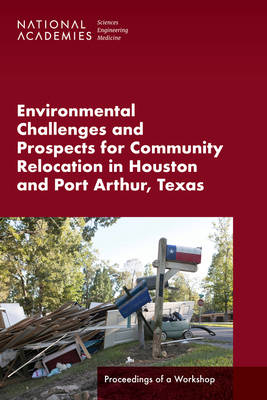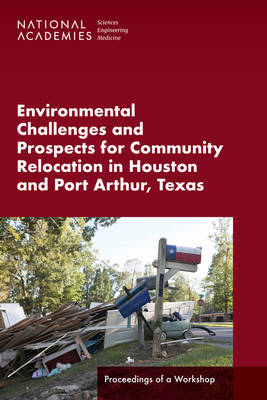
- Retrait gratuit dans votre magasin Club
- 7.000.000 titres dans notre catalogue
- Payer en toute sécurité
- Toujours un magasin près de chez vous
- Retrait gratuit dans votre magasin Club
- 7.000.0000 titres dans notre catalogue
- Payer en toute sécurité
- Toujours un magasin près de chez vous
Environmental Challenges and Prospects for Community Relocation in Houston and Port Arthur, Texas
Proceedings of a Workshop
National Academies of Sciences Engineering and Medicine, Division of Behavioral and Social Sciences and Education, Board on Environmental Change and SocietyDescription
Strategically moving communities and infrastructure--including homes and businesses--away from environmentally high-risk areas, such as vulnerable coastal regions, has been referred to as "managed retreat." Of all the ways humans respond to climate-related disasters, managed retreat has been one of the most controversial due to the difficulty inherent in identifying when, to where, by whom, and the processes by which such movement should take place. In 2021, the Gulf Research Program of the National Academies of Sciences, Engineering, and Medicine sponsored a two-year consensus study, Managed Retreat in the U.S. Gulf Coast Region, to learn about and respond to the unique challenges associated with managed retreat. As part of this study, the committee convened a series of three public workshops in 2022 in the Gulf Coast region to gather information for the consensus report. Each workshop focused on policy and practice considerations, research and data needs, and community engagement strategies. This proceedings recounts the first workshop in Houston and Port Arthur, Texas.
Spécifications
Parties prenantes
- Auteur(s) :
- Editeur:
Contenu
- Nombre de pages :
- 74
- Langue:
- Anglais
Caractéristiques
- EAN:
- 9780309693172
- Date de parution :
- 12-01-23
- Format:
- Livre broché
- Format numérique:
- Trade paperback (VS)
- Dimensions :
- 152 mm x 229 mm

Les avis
Nous publions uniquement les avis qui respectent les conditions requises. Consultez nos conditions pour les avis.






